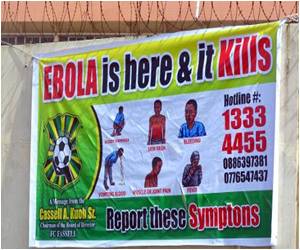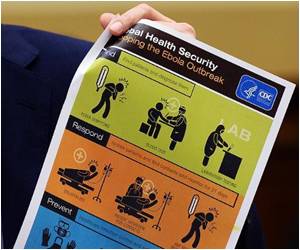Health authorities in US have urged active monitoring of people at risk of Ebola after returning from West Africa but stopped short of recommending a strict quarantine.

Those at the highest risk of having contracted the Ebola virus include healthcare workers who experienced a needle stick or had fluids from an infected person splash in their eyes or on broken skin.
The high-risk category also includes those who handled bodily fluids without wearing personal protective equipment, those who touched the corpse of a person who died of Ebola, or family members who cared for an Ebola patient.
The monitoring means that someone accountable to the local or state health department observes the person's temperature being taken, has a conversation with them daily including going over a checklist of potential Ebola symptoms, and reviews plans for their daily activities, said CDC chief Tom Frieden.
"That, we think is good sound public health policy," Frieden told reporters.
"We know with Ebola that as people get sicker they get much more infectious, so those first few hours or days of the beginning of symptoms are far less likely to result in any infections than are the later courses of the disease when people have much, much larger numbers of virus that they are excreting."
People at some risk of Ebola include people who spent "a long time" in the presence of a symptomatic Ebola patient without wearing protective gear, or any healthcare worker who cared for Ebola in patients in West Africa even when wearing protective coverings.
People at low risk of Ebola include those who were in a country stricken with the virus but who had no known exposure, or those who were in the same room as an Ebola patient but did not touch them.
All three categories are urged to have a medical examination to rule out the infection.
Source-AFP
 MEDINDIA
MEDINDIA




 Email
Email





